Sign up for our newsletter!
Your data will be handled in compliance with our privacy policy.
Your data will be handled in compliance with our privacy policy.

This is a summary of an article featuring Smoltek titled "Smoltek bryter teknisk barriär och efterlyser pengar" published by elektroniktidningen on June 16, 2025.

Smoltek Semi joins an elite club of companies achieving 1 µF/mm² capacitance density, but stands alone in reaching this milestone with an ultra-thin profile. This breakthrough unlocks the under-chip real estate that represents the holy grail of capacitor placement in modern electronics.

This is a summary of an article featuring Smoltek titled "Smoltek's Fuel Cell Breakthrough Slashes Iridium Use, Advancing Hydrogen Fuel Cell Tech" published by Hydrogen Fuel News on June 13, 2025.
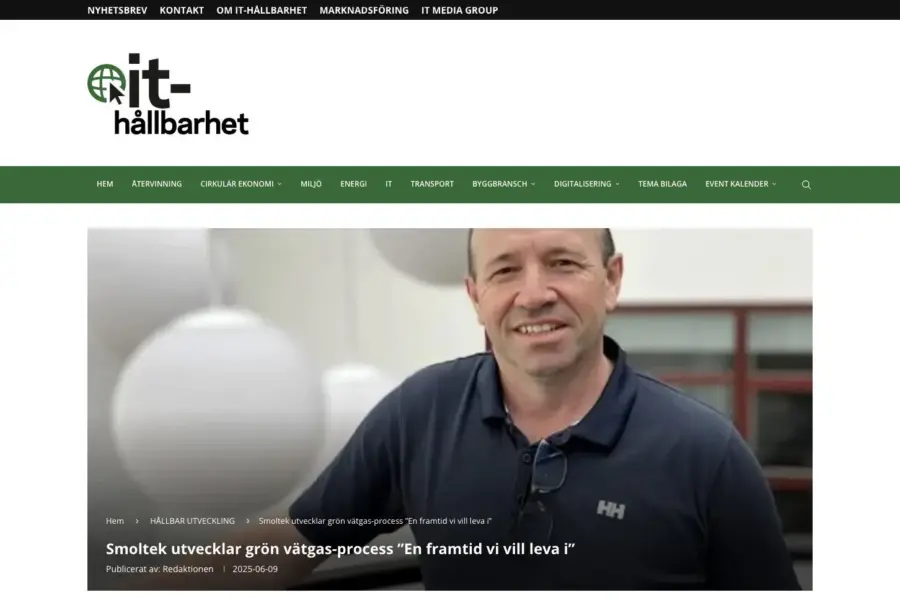
This is a summary of an article featuring Smoltek titled "Smoltek utvecklar grön vätgas-process 'En framtid vi vill leva i'" published by IT-Hållbarhet.se on June 9, 2025.
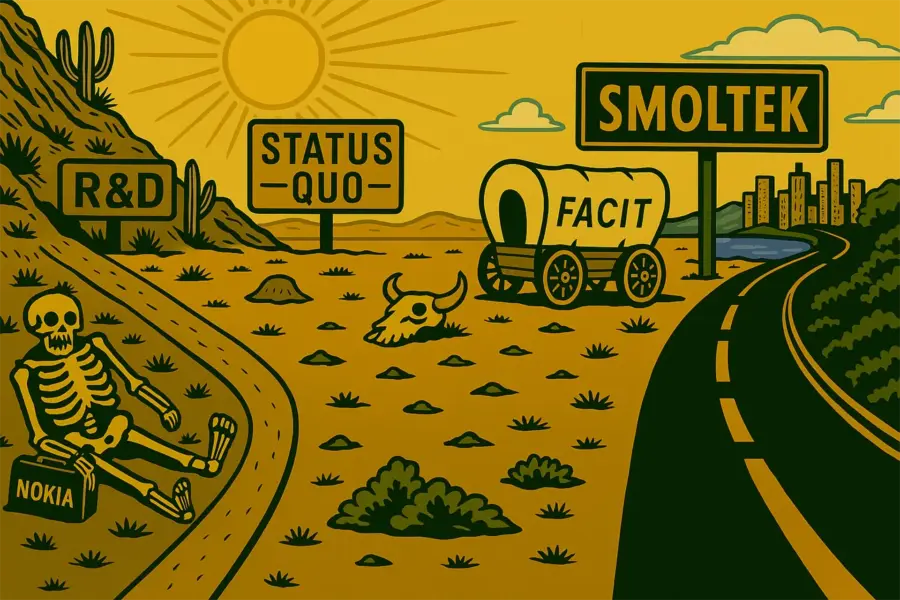
While traditional development processes often progress at a measured pace, truly disruptive technologies, such as Smoltek’s Porous Transport Electrode (PTE), can dramatically compress timelines. When faced with potentially market-changing innovations, industrial enterprises must choose between maintaining the status quo, slow internal development, or embracing partnership with innovative companies like Smoltek Hydrogen.

Taking a breakthrough technology from the lab bench to the world market often requires collaboration with large industrial enterprises. In this interview, Ellinor Ehrnberg, president of Smoltek Hydrogen, explains how the company aligns its own development with that of potential buyers while navigating the complex journey from initial interest to strategic partnership.

For industrial enterprises, bringing new technologies into existing product lines follows a structured process. Understanding this process is vital for high-tech companies seeking integration partnerships. Here, we explain the systematic journey that governs how industrial enterprises evaluate and adopt innovations, and how high-tech companies can create revenue opportunities at each stage along the way.

In the race to make green hydrogen economically viable, researchers worldwide are pursuing the seemingly impossible: reducing iridium use in PEM electrolyzers by 95%. As Smoltek gets closer to this holy grail of 0.1 mg/cm², we examine how other technologies measure up.

When experts talk about the energy systems of the future, they often come back to one specific number: 0.1 milligrams per square centimeter (0.1 mg/cm²). This seemingly insignificant number could be critical to moving green hydrogen from a promising concept to an economic reality.
Modern electronics demand increasingly compact and powerful capacitors, and the race for miniaturization has reached a critical juncture. While both Deep Trench Capacitors (DTC) and Carbon Nanofiber Metal-Insulator-Metal (CNF-MIM) capacitors are being developed for advanced applications requiring smaller size and higher capacitance density than conventional surface-mounted capacitors, DTC pushes the boundaries of what’s achievable with subtractive manufacturing, but is hitting fundamental physical limits. In contrast, Smoltek’s innovative CNF-MIM technology offers a revolutionary path forward, unrestricted by these constraints.
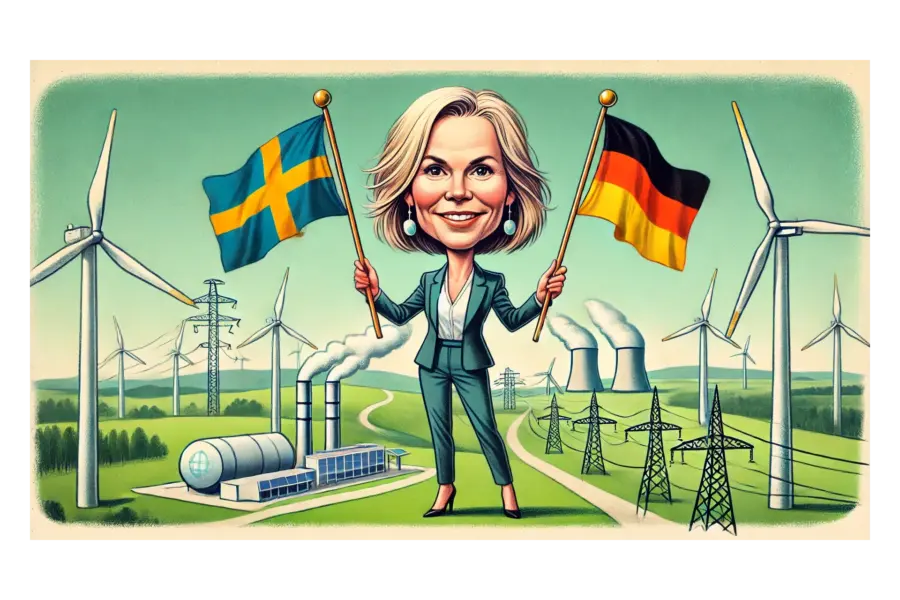
An interview with Smoltek Hydrogen CEO Ellinor Ehrnberg about her recent visit to Germany and the rapid acceleration of the hydrogen economy.

Leading PEM technology expert Dr. Felix Büchi has completed an independent assessment of Smoltek Hydrogen’s Porous Transport Electrode (PTE) technology, confirming its unique ability to dramatically reduce iridium usage while maintaining high performance in hydrogen production. In an exclusive interview with Smoltek Hydrogen’s President, Ellinor Ehrnberg, Büchi shares insights about the technology’s distinctive advantages and market potential.

The ultra-thin capacitor market is entering a new phase as major players like Murata and Samsung invest heavily in silicon-based solutions. In a recent interview, YAGEO Group's CTO Philip Lessner explains why Smoltek's CNF-MIM technology could offer superior advantages to silicon-based solutions in this rapidly growing market.
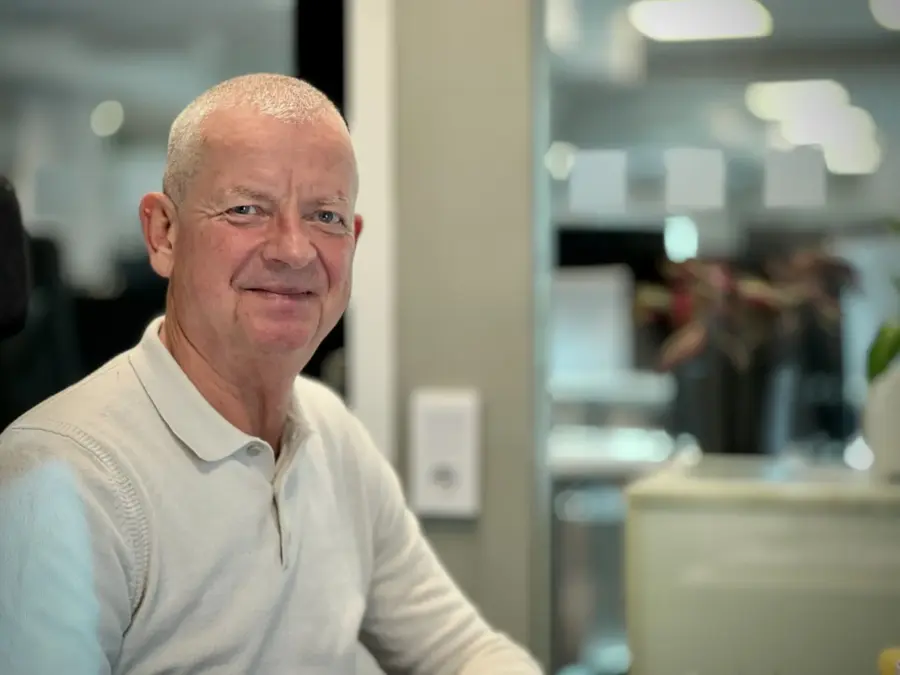
Smoltek’s CEO, Håkan Persson, answers nine key questions about the company’s financial status, ongoing projects, and strategy. From the latest on the bidding process to the outlook for their semiconductor and hydrogen initiatives, this candid Q&A provides valuable insights for shareholders and stakeholders alike.
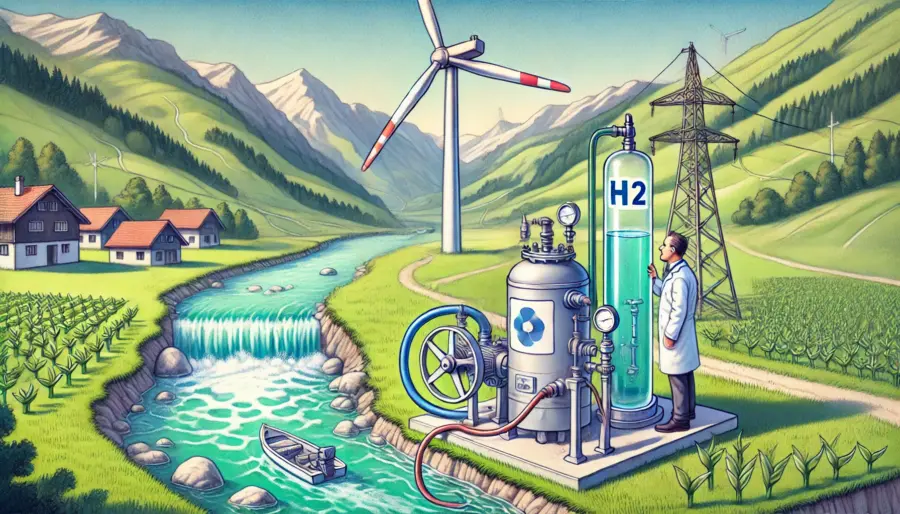
Discover how Smoltek’s innovative Porous Transport Electrode (PTE) technology stands up to expert scrutiny. Learn about its impressive performance, and why it’s poised to transform PEM electrolyzers. Get the inside scoop on what this means for Smoltek’s future in the green hydrogen market.

Our innovative “zapping” method drastically reduces development time and costs, enabling us to advance CNF-MIM technology faster and making Smoltek Semi’s technology even more attractive to potential buyers. Read on to see how this new process strengthens our position and shortens our path to market.

Smoltek Semi has developed a new material for use in CNF-MIM capacitors. The new material increases capacitance by more than three times and reduces leakage current by 50 percent. In this article, we examine what this means and why it is good for shareholders and investors.
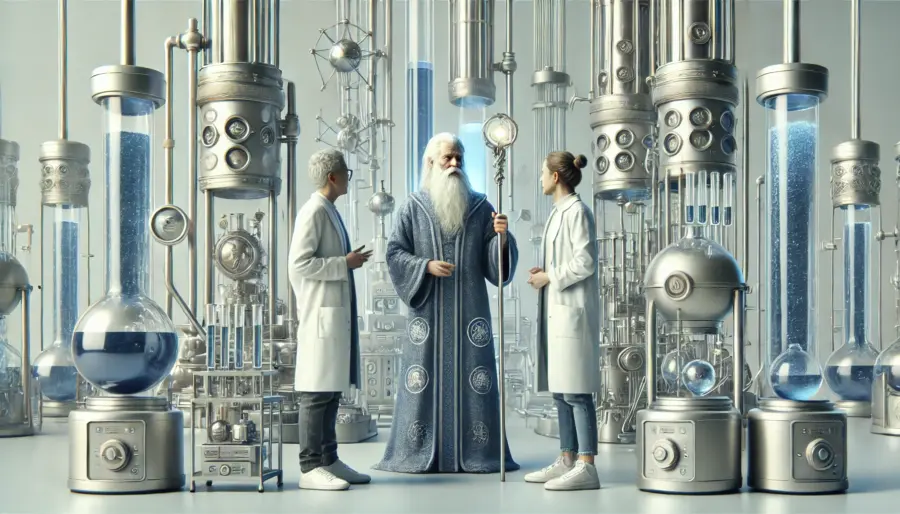
Smoltek’s recent breakthrough in growing carbon nanofibers (CNF) on an A4-sized area has caught the attention of researchers and industry experts alike. And rightly so! This achievement showcases Smoltek’s unique capabilities and valuable intellectual capital that must be protected. While patents are crucial for safeguarding this, fostering a company culture that empowers our employees is equally important. Let’s dive deeper.

Smoltek’s focus on qualified research places it firmly in the Explorer quadrant of the R&D Evaluation Matrix, a model for assessing a company’s research and development strategy. Discover why this matters to investors and how Smoltek translates groundbreaking research into valuable business opportunities.

In a world where nearly every company claims to be innovative, it can be challenging for investors to distinguish between incremental improvements and groundbreaking discoveries. This article introduces the R&D Evaluation Matrix, a simple 2×2 model that helps clarify a company’s true innovation strategy, offering valuable insights into its potential for future growth and success.